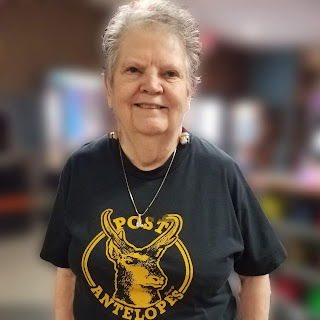Blatant Teaser
If you’re a Kindle owner and avid consumer of ebooks, today’s hottest tip will more than repay the price of your SleuthSayers subscription. This article includes a startlingly simple way to open your Kindle to the vast library of ePub titles available to everyone… except Kindle users.
Most of my comments are directed toward the Kindle PaperWhite. The Kindle Fire is a different machine with different capabilities. For example, you can ‘side-load’ Android apps to read formats and read aloud that the Kindle e-Ink tablets won’t allow.
But first…
Self-editing is at best problematic. Once a draft is completed, we must first rid a text of errors and then refine and smooth the writing. I’m not alone in this, but I may be more prone to skid-reading than many of my colleagues.
In latter stages of the editing process, I read a story aloud and have the computer read it back to me. I’ve discovered reading from different platforms (laptop, desktop, tablet, even a printed page) often reveals bugs that may have lurked for ages, defying me to spot them.
I like to take a break from the computer, load a document on my tablet, put my feet up on the sofa, and either read or let the tablet read to me. Android and Apple app stores offer several free programs that will do this. Most accept the world’s most common format, .ePub, but not the proprietary Amazon formats, AZW, AZW3, KF8, KFX, MOBI, and so on. Likewise, Kindles refuse to read ePub formats, locking readers into the Amazon ‘eco-system’.
One of the early Kindle models would read aloud documents, but what Amazon giveth (albeit for lots of money), Amazon taketh away. When Amazon announced that functionality had returned in later PaperWhite models, they limited it to Kindle commands for the visually impaired and Audible™ books.
Proprietary formats have been a problem throughout the ereader industry, following the same history of word processors, the first practical programs for personal computers. Companies would throw up fences around their products, refusing to write to ‘foreign’ file types and making it as difficult as possible for others to read theirs. The most common ebook format is ePub, the open technical standard published by the International Digital Publishing Forum, a standard Kindle will not read.
eReaders
- Amazon Kindle dominates about 80% of the North American market, much less so in other parts of the world. Its native formats are .azw and .mobi.
- Rakuten Kobo (Kobo is an anagram of book) is the only major global competitor to Amazon. They sell worldwide, everywhere except the US. That may change with their partnership with Walmart.
- Pocketbook is sold mainly in Oceania and states of the former Soviet Union.
- Barnes & Noble Nook (and Samsung Nook) was one of the first ereaders on the market, quickly steamrolled by Amazon. They have a spotty market mostly in the US.
eFFective (not)
I have a relatively recent Kindle PaperWhite that I occasionally use, but its strict limitations on what I can load onto it usually leave it on the shelf. Seldom do I bother to create .mobi files just for the Kindle. It’s far easier to use an iPad or Android tablet with free third-party apps to read free ebooks.
eAuthors?
I’ve been experimenting loading on Microsoft Word .docx and .rtf files. Using the eReader, I can mark up manuscripts by pressing a word, expanding the range of the word if necessary, and then typing in a note of the text I want to change. Unlike a Word-type app on a tablet where I might change the text directly, I’m restricted to marking up text, but that can be useful.
| In-Line Markups |
List of Markups |
|
|---|---|---|
 |
 |
Usually I note the change, which I then effect when I return to my computer. Initially, I keyed in ‘Del’ for deletion of a word or phrase, but now I simply highlight the words (using the same mechanism), which serves to remind me what has to go.
The main visual difference is that a note will contain an identifying superscript number in a tiny box. When tapped, the note pops up in a window.
Amazon.com can display Kindle notes and highlights in a browser window, which would be wonderfully convenient for editing but… forget that route for now. Once again, Amazon permits browser viewing of notes only for books purchased from them. Amazon giveth, Amazon taketh away.
In case you’re wondering, that special URL is
SleuthSayers Auto-Magical, Tremendous, Stupendous,
Super-Fantastically All Powerful, Fabulous Kindle Tip
You have a Kindle PaperWhite and would like to read an .epub file on it, one that Amazon won’t allow. If you email it to your kindle.com address, you’ll receive a message like this:
Dear Customer,
The following document, sent at 11:04 PM on Sat, Nov 06, 2021
GMT could not be delivered to the Kindle you specified:
* ExoticEroticRomanceNo54.epub
Uh-oh. But try the following additional step, which might be a programmer’s ‘back door’. I have no other logical explanation why this works… it just does.
- Rename your ebook extension from .epub to .png … that’s right, the graphics format. For example, rename your novel
ExoticEroticRomanceNo54.epub
to
ExoticEroticRomanceNo54.png - Email it to your kindle.com address as usual. You do have one of those, don’t you? It’s mentioned in your Kindle settings.
- Transfer should take only moments, but grab a coffee, then see if your story is on your Kindle.
Did it work? Thank us later!







































